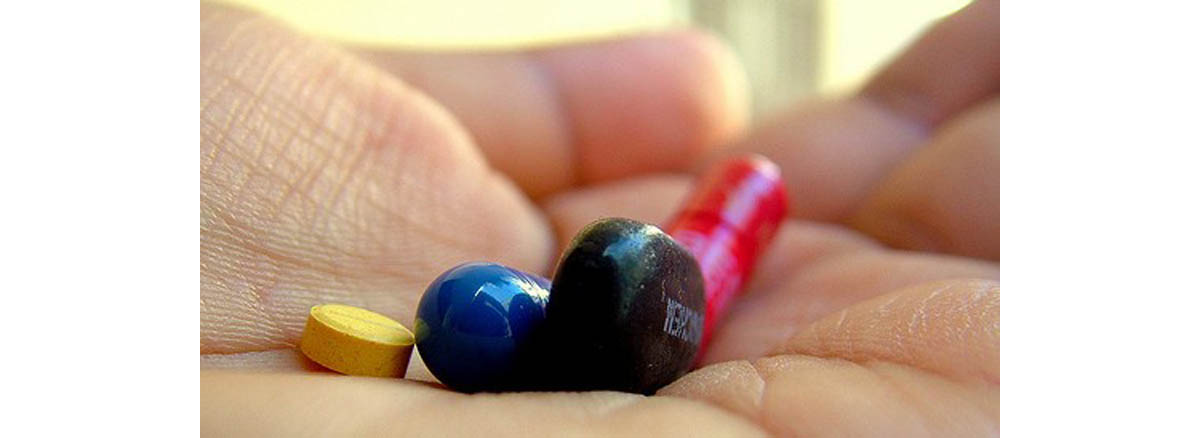You may be familiar with the relationship between the good and bad bacterial flora within your body, but the reality of the situation is that the good bacteria in your body is also working to keep natural levels of Candida in balance as well. When the yeast to bacteria ratio becomes altered, you can end up with any of a wide variety of fungal infections.

Recognizing Acute Candida Infections
As with any other infection, something that is acute is rather quick in it's onset and has a rather short life. If you've had a very stressful life event, have been ill and have a compromised immune system, or have taken a course of antibiotics, you may end up with an acute Candida infection caused by the shift in bacterial balance because of your medications. You're likely familiar with the names of some of the more acute forms of Candida fungal infections.
Vaginal yeast infections impact many women on a regular basis. Women who have taken antibiotics often swear they'll get a vaginal infection right away. This is because of the major shift in the balance of Candida to bacteria in the vaginal area. Many women also recognize the symptoms of Candida each month, right before menstruation, because of the change in their vaginal pH during that time. In most cases, vaginal yeast infections can be treated with over the counter medications and creams.
Athlete's foot is perhaps one of the most annoying yeast-related problems people face. Believe it or not, this condition can impact not only your feet and toes but your hands and fingers as well. Athlete's foot often occurs if you wear shoes that are too tight, creating a warm, moist environment between the toes, or if you wear damp socks. This particular infection is mold-like in nature, and is rather aggressive. It's also highly contagious. You can often alleviate your symptoms by keeping your feet clean and dry and by using over the counter anti-fungal treatments.
Oral thrush is a condition a lot of people believe only impacts babies, but adult men and women can and do get it as well. Thrush occurs when the levels of Candida in your mouth build up to unnatural levels, causing lesions on your tongue and on the insides of your cheeks, ultimately making eating and swallowing painful and difficult. Those who have compromised immune systems, diabetes, or who use inhaled corticosteroid drugs are at a higher risk for developing this type of infection. It is often treated with yogurts and acidophilus capsules and, in more severe cases, with prescription antifungal medications.
Men may develop jock itch while younger people are more prone to developing ringworm and other fungal skin infections. Even tinea versicolor, a condition that causes white spots on your skin, is related to yeast. The important thing to remember is that acute infections often go away with a round of treatment and the restoration of bacterial/yeast balance in the body.
Recognizing Chronic Candida Infections
Chronic or systemic candida infections are a bit trickier to identify and deal with. You may, at best, end up with a recurring infection in one of the styles we just discussed. If the levels of Candida in your body have built to high levels, simple over the counter remedies and treatments may temporarily alleviate your symptoms but you'll find that they come back over and over again – perhaps a little worse and more difficult to treat each time. Recurring infections are a sign you may need to seek treatment for a systemic infection.

Problems arise when you have such a distinct overgrowth you end up experiencing symptoms that mimic other conditions. For example, I've seen several people who appear to have frequent urinary tract infections, irritable bowel syndrome, chronic fatigue syndrome, and even high levels of anxiety or depression.
At first glance, an uneducated doctor would see the symptoms of a urinary tract infection and prescribe a round of antibiotics. The problem, in this case, is that the UTI is not the actual problem, but a symptom. The antibiotic temporarily alleviates the symptoms, but it actually exacerbates the Candida overgrowth within the body, causing more symptoms (and probably another UTI). Once the chain of incorrect treatments has started, it's often difficult to break. Over time, you end up with a list of seemingly obvious symptoms but traditional treatments just don't seem to work.
Some additional symptoms (and this is not a complete list, by any means), include:
- Carbohydrate cravings and the appearance of food allergies,
- General feelings of weakness, malaise, and fatigue,
- Heart-related complications such as arrhythmias, heartburn, and palpitations,
- Difficulty concentrating, confusion, and mood swings,
- Abdominal discomfort, gas, and stomach complaints,
- Diarrhea, constipation, and bacterial infections of the gut,
- Kidney and bladder infections, especially those that keep recurring,
- Persistent vaginal issues such as vaginitis, vaginal thrush, and itching or irritation, and
- Skin irritations such as jock itch, psoriasis, seborrhoea, and contact dermatitis.
As you can see, most of these symptoms can be related back to stand-alone conditions. The reality is that when they keep occurring and your state of health seems to continue declining, they should be looked at as just that – symptoms. Once you change your mindset and start thinking outside the traditional diagnosis box, you'll see the necessity of being tested for, and treating, your Candida overgrowth.
Commonly Asked Questions About Systemic Candida
How does one test for Candida?
There are some home tests that can be done to test for Candida, including the spit test, where you spit into a clean glass of water in the morning and watch to see what happens. If you have Candida, the spit will likely be cloudy and will start to extend tendrils down into the glass of water, sink to the bottom, or float in particles at the middle of the glass. Clear spit that stays at the top of the glass is not infected.
There are blood tests, urine tests, and even fecal tests that can be used to test the levels of Candida in your body.
Is systemic Candida contagious?
Yes and no. Candidiasis itself isn't necessarily contagious. For example, you can't pass your urinary tract infection, IBS, or depression on to others.
Athlete's foot is highly contagious, whether you have an acute or chronic infection. Vaginal yeast infections and jock itch aren't considered sexually transmitted diseases, per day, but you can definitely pass your infections back and forth with your intimate partners and should avoid that type of contact if you have symptoms impacting your reproductive organs.
Is systemic Candida life threatening?
Yes, it can be. If the yeast organism enters the bloodstream and spreads throughout the body, you can become incredibly ill.
Many people find themselves, at the later stages of a chronic infection, taking anti-fungal medications but not addressing other diet and lifestyle changes needed to really find relief.
How is Candida ultimately treated?
That's the tough part for most people. Antifungal medications are great for reducing the excess Candida in the body.
Some herbs and natural supplements are often used to decrease yeast levels and support your immune system as well. These things are all great, but they can't stand alone. They need to be combined with a program that alters your diet and your lifestyle so that you can completely eliminate your overgrowth without contributing to the yeast infection.
Stress reduction is critical to your success as well. You'll need to talk to a naturopath or doctor for a full treatment plan and make sure you follow it to the letter for several months. Deviating from the plan is likely to cause your infection and symptoms to come back.
An acute Candida yeast infection may be bothersome, but it's treatable. Chronic candida infections, or systemic infections, can be more serious to your health and well-being. Don't be afraid to talk to your doctor about your symptoms and research and don't be afraid to question the use of broad spectrum antibiotics. You have the right to ask for further testing or, if necessary, a second opinion.
- Photo courtesy of dhammza on Flickr: www.flickr.com/photos/dhammza/6790590409


Your thoughts on this